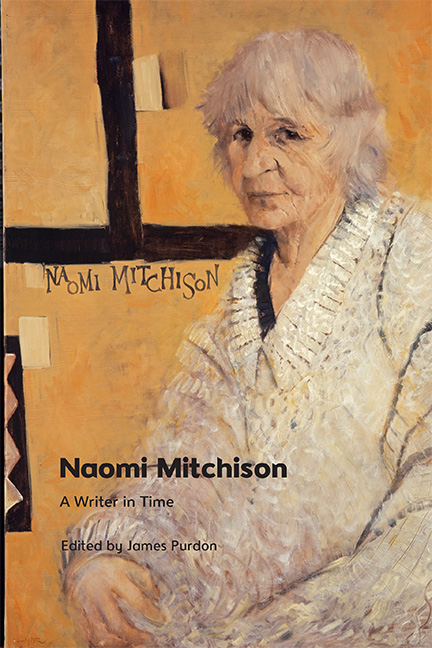Book contents
- Frontmatter
- Contents
- Acknowledgements
- Notes on Contributors
- Introduction
- 1 Naomi Mitchison’s Interwar Short Stories
- 2 ‘She had her hand on the plow’: Shame, Uncertainty and Transformation in The Corn King and the Spring Queen
- 3 Varieties of Sexual Experience: Naomi Mitchison, Mysticism and Gerald Heard
- 4 Scientific Temporalities in We Have Been Warned and ‘Beyond This Limit’
- 5 Send in the Clones? Naomi Mitchison and the Politics of Reproduction and Motherhood
- 6 From Argyll with Love: Naomi Mitchison and the Soviet Union
- 7 Fire or Blood? Aestheticising Resistance in Naomi Mitchison’s The Blood of the Martyrs
- 8 ‘The summoning urgent thing’: The Bull Calves and the Drive to Experiment at Mid-Century
- 9 Mitchison, Decolonisation and African Modernity
- Naomi Mitchison’s ‘Europe’
- Europe
- Bibliography
- Index
1 - Naomi Mitchison’s Interwar Short Stories
Published online by Cambridge University Press: 18 November 2023
- Frontmatter
- Contents
- Acknowledgements
- Notes on Contributors
- Introduction
- 1 Naomi Mitchison’s Interwar Short Stories
- 2 ‘She had her hand on the plow’: Shame, Uncertainty and Transformation in The Corn King and the Spring Queen
- 3 Varieties of Sexual Experience: Naomi Mitchison, Mysticism and Gerald Heard
- 4 Scientific Temporalities in We Have Been Warned and ‘Beyond This Limit’
- 5 Send in the Clones? Naomi Mitchison and the Politics of Reproduction and Motherhood
- 6 From Argyll with Love: Naomi Mitchison and the Soviet Union
- 7 Fire or Blood? Aestheticising Resistance in Naomi Mitchison’s The Blood of the Martyrs
- 8 ‘The summoning urgent thing’: The Bull Calves and the Drive to Experiment at Mid-Century
- 9 Mitchison, Decolonisation and African Modernity
- Naomi Mitchison’s ‘Europe’
- Europe
- Bibliography
- Index
Summary
Introducing a recent edition of The Fourth Pig (1936), Marina Warner tried to elucidate why Naomi Mitchison had been so neglected by readers and critics:
[S]ome of the writers with whom she could be compared – contemporaries such as Virginia Woolf (b. 1882) and Elizabeth Bowen (b. 1899), and others who were close friends, Wyndham Lewis (b. 1882) and Aldous Huxley (b. 1894) – were naturally modern. Whether by instinct, default, or choice, such writers belonged to the twentieth century and conveyed features of the time without needing to check their watches. But Naomi Mitchison is only partly modern. Or perhaps […] she was oddly, but not entirely, modern. This quality, her faltering modernity, arises from many features of her life and work.
This reading seems to function both as a biographical-literary-historical sketch and as a way to ask an inescapable if implicit question: for if Mitchison is intriguingly ‘partly modern’, which of her texts might allow readers to understand this mode? A predictable answer might reach for her most famous novels, but it is worth noting the scale of the commitment they demand from a reader: The Corn King and the Spring Queen (1931) – 720 pages; We Have Been Warned (1935) – 582 pages; The Bull Calves (1947) – 532 pages. This is major fiction in both length and complexity; the works cover vast amounts of time, both narrative time and reader’s time. It is an art of excess, intentional or not, and with that many other aspects of value can be elided. But as well as writing novels Mitchison also wrote journalism, political tracts, poems – and many short stories. And I believe it is in her short stories – with their intensity and focus, as well as their craft and connection to the ‘tale’ and oral traditions – that readers now can best understand Mitchison’s aesthetic: her engagement with the past; her testing of the form; and her conception of the political responsibilities of any writer. This is a potent combination, and one in short (and shortness does have many virtues) that best shows her version of being ‘partly modern’.
Mitchison is not alone in using a compact form for complex ends.
- Type
- Chapter
- Information
- Naomi MitchisonA Writer in Time, pp. 15 - 29Publisher: Edinburgh University PressPrint publication year: 2023

